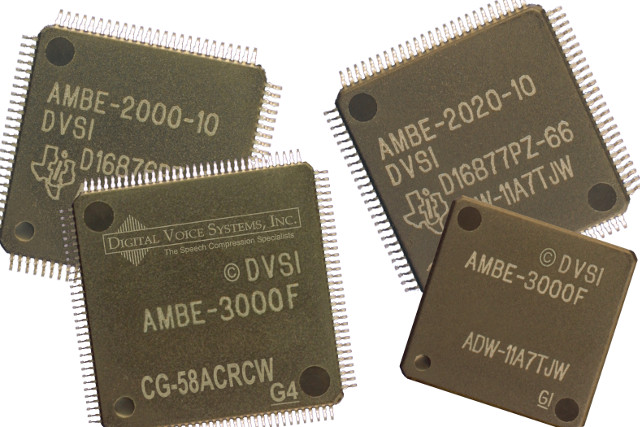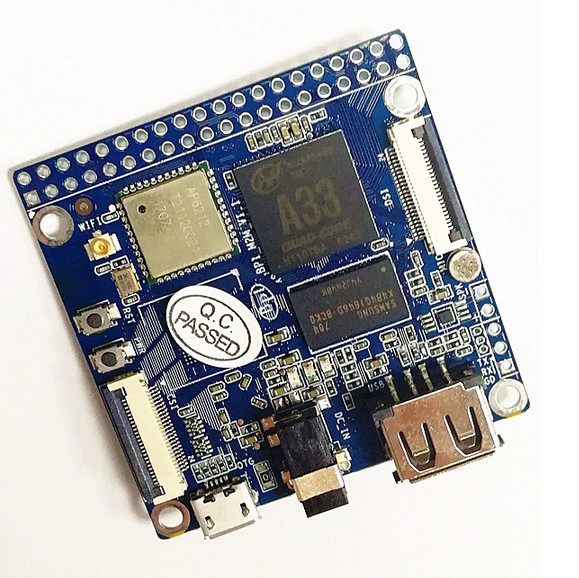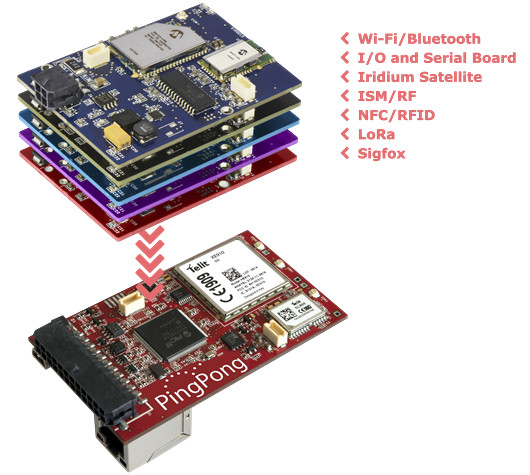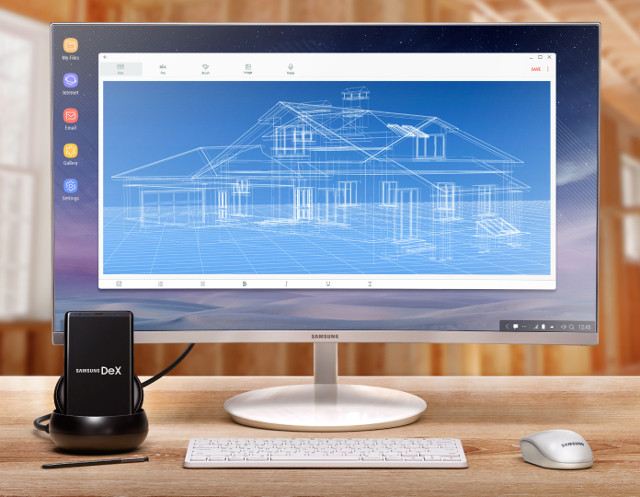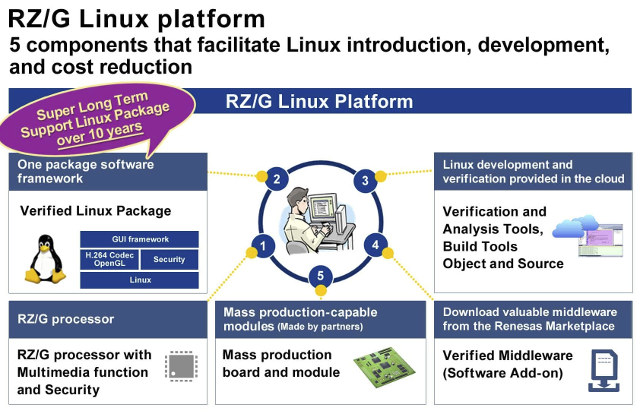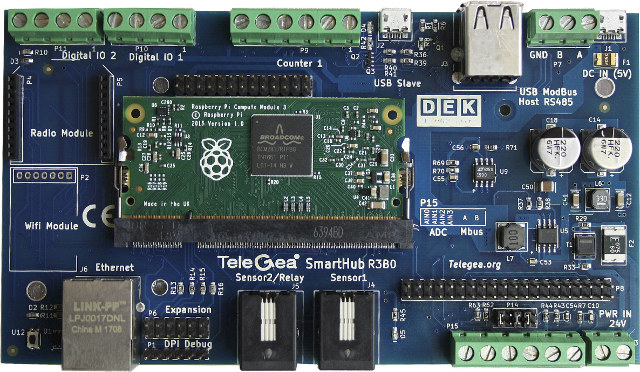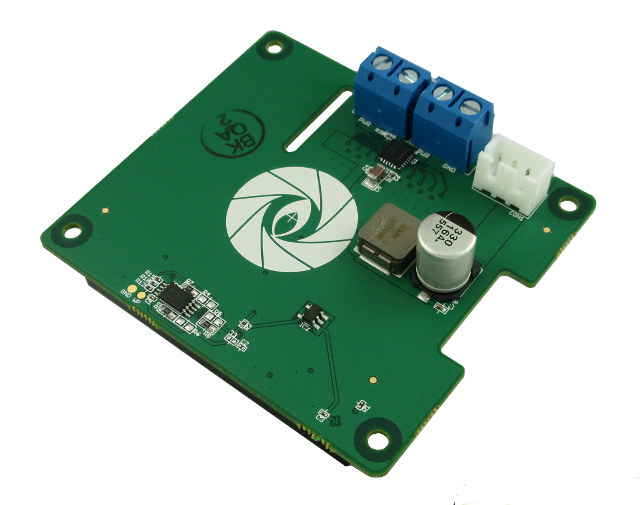Opus 1.2 open source audio codec was release a few months ago with the ability to deliver low power low high-quality audio bitrate for speech with bitrates as low as 12 Kbps. Digital Voice Systems (DVSI) claims to have gone even lower thanks to their AMBE+2 vocoder (Advanced MultiBand Excitation) providing high-quality speech at data rates from 2.0 to 9.6 kilobytes per second. AMBE+2 vocoder is said to outperform the company’s previous generation AMBE+ Vocoder as well as the G.729 and G.726 vocoders, while operating at only 4.0 Kbps. The vocoder is suitable for mobile radio, secure voice, satellite communication, computer telephony, digital voice and storage applications The solution can be integrated into product either using software licensing, or through Vocoder chips, and the company lists the following key benefits: Maintains speech intelligibility and speaker recognition at rates as low as 2.0 kbps Resistant to background noise and channel bit errors […]
CHUWI LapBook 14.1 Laptop Manufacturing Changes – Hardware at Launch vs Several Months Later
Products may evolve over time due to parts becoming phased out (EOL), so company often issues PCN (product change notices) to the company for example to replace eMMC flash that’s not manufactured anymore by a new one. They won’t change any advertised features, so the product specifications should remain the same. Reviewers normally get product from one of the first batch of production, and if you purchase the product a few months later, after carefully reading reviews, you may end up with a device slightly different. But in some cases, the company makes major changes, while still delivering the same advertised hardware specifications. That’s apparently the case for CHUWI LapBook 14.1 laptop. The photo below shows how it looked internally for the sample I reviewed. If you zoom on the photo, you’ll find an M.2 slot on the bottom of the right PCB, potentially allowing you to add an SSD […]
Banana Pi M2 Magic Board Now Sold with Allwinner A33 Processor for $23
Banana Pi M2 Magic development board was first unveiled in February of this year with an Allwinner R16 SoC, 512 MB RAM, and 8GB eMMC flash, and its main selling points were support for MIPI DSI LCD displays, CSI cameras, and 3.7V LiPo batteries. AFAIK SinoVoIP never sold that version of the board, at least on Aliexpress. Possibly due to the intricacies of Allwinner business units, the company has now officially launched Banana Pi M2 Magic (aka BPI M2M), but replaced Allwinner R16 by the similar Allwinner A33 processor, and removed the 8GB eMMC flash to bring the price down to $23 plus shipping. The “old” Allwinner R16 based Banana Pi M2 Magic board will apparently be sold as M2 Magic Plus soon. Banana Pi BPI-M2 Magic (A33) specifications: SoC – Allwinner A33 quad core ARM Cortex-A7 processor with ARM Mali 400 MP2 GPU System Memory – 512MB DDR3 Storage […]
PingPong IoT Development Board Supports Cellular Connectivity, WiFi, Bluetooth, LoRa, Sigfox, and More
Round Solutions, a supplier of products, services and concepts for industrial M2M and IoT markets, has introduced PingPong IoT development board with either Microchip PIC32MZ running an RTOS, or PIC32MZ DA running Linux, and equipped with a Telit modules for either 2G or 3G cellular + GNSS connectivity. The board can also support WiFi, Bluetooth, ISM/RF, NFC/RFID, LoRa, Sigfox, Iridium satellite, and serial interface thanks to a range of expansion boards. PingPong IoT board specifications: MCU / Flash RTOS version – Microchip PIC32MZ 32-bit Microcontroller @ 200 MHz, with 512 KB RAM and 2 MB Flash Memory + 4 MB external memory Linux version – Microchip PIC32MZ DA (Full specs TBA) Connectivity Cellular connectivity Telit xE910 module with 2G, 3G and/or 4G LTE (coming soon) Data GSM/GPRS – Uplink/Downlink: 9.6 kbps UMTS – Downlink: 384 kbps, Uplink: 384 kbps HSPA+ – Downlink: 42.0 Mbps, Uplink: 5.75 Mbps LTE – Download: 100 […]
Linux on Galaxy to Bring Linux Desktop to Samsung Note8, Galaxy S8 and S8+ with DeX Station
Earlier this year, Linux desktop mobile convergence took a serious hit when Canoncial decided to drop support for Unity and Mobile Convergence in their Ubuntu distributions, focusing instead on the enterprise and IoT market, and replacing Unity by GNOME starting with the just released Ubuntu 17.10. Things started to look better with Purism Librem 5 Linux smartphone, which has now raised $1.8 million dollars, and partnered with well-known members of the Linux ecosystems like KDE, GNOME, and NextCloud. However, the phone will be based on a rather low end NXP i.MX 8M quad Cortex A53 SoC, is scheduled for January 2019 only, and being a crowdfunding campaign, failure is always a possibility. But today, the outlook for Linux phones brightened even more, as Samsung unveiled plans for “Linux on Galaxy” at the Samsung Developer Conference 2017. The solution will leverage the company’s DeX (Desktop Experience) that relies on DeX Station […]
Renesas RZ/G Linux Platform features CIP Super Long-Term Support (SLTS) Linux kernel
In the consumer space, some devices never get updated, and you can consider yourself lucky if the manufacturer provides updates for several years, often just two as Linux LTS (Long Term Support) kernels had been supported that long so far. Google and the Linux Foundation realized that was not enough, so they recently announced 6-year LTS kernels at Linaro Connect SFO 2017, starting with Linux 4.4 released on January 2016, meaning it will keeping being maintained until January 2022 with security patchsets and bug fixes. But in the industrial/embedded space, they need even longer periods of support due to the longer equipment’s lifespan. I first heard about the Linux Foundation’s Civil Infrastructure Platform (CIP) project last year, when I covered the schedule for the Embedded Linux Conference Europe 2016. The project aims at providing a super long-term supported (STLS) open source “base layer” for industrial grade software. Several companies are […]
Telegea Smart Hub DIN Rail IoT Gateway is Powered by Raspberry Pi CM3 Module
DEK Italia has recently introduced Telegea Smart Hub, an IoT gateway based on Raspberry Pi Computer Module 3 (CM3) with Ethernet, WiFi, RS232/485 ports, and various other I/O ports, that can leverage Raspberry Pi software ecosystem. The company explains the device is mainly targeted at DIY home automation applications as a smart home controller which runs open source smart home software like OpenHAB and Home Assistant, but it can also be used for many other IoT applications. Telegea Smart Hub R3B0 specifications: SoC – Broadcom BCM2837 quad core Cortex A53 processor with VideoCore IV GPU System Memory – 1GB LPDDR2 RAM Storage – 4GB eMMC flash, 256 byte EEPROM Connectivity – 10/100M Ethernet port, optional Wifi 802.11 b/g/n at 2.4 GHz Serial – RS485 serial port, RS232 serial debug port USB – 2x USB 2.0 host ports Expansion 6xdigital inputs via screw terminals (for dry contacts or S0 interface) 4x […]
Gumstix Expands Raspberry Pi Support with Stepper Motor, Breakout Board, LoRa PoE, and Yocto Linux
Gumstix has recently released of three new expansion boards compatible with Raspberry Pi boards and Compute Modules: Gumstix Pi Stepper HAT for 4-wire stepper motors Gumstix Pi Newgate breakout boards exposing all I/Os of Raspberry Pi Compute Module and Compute Module 3 Gumstix Pi Conduit PoE adding PoE support to their LoRa gateway kit based on RisingHF RHF0M301 LoRa concentrator module. The company also offers a custom Yocto 2.2 (Morty) Linux images with support for their Pi HATs and Compute Module carrier boards. Gumstix Pi Stepper HAT The expansion board is designed with the 40-pin header for Raspberry Pi products, and includes Texas Instruments DRV8846, a 4 – 18V, 1.4A stepper motor driver with 1/32 microstepping providing rotational accuracy below a tenth of a degree, and 6,400 distinct positions. The board supports 6 to 36V batteries via a 3-pin headers, includes 256 kbit serial EEPROM, and can be used for […]


